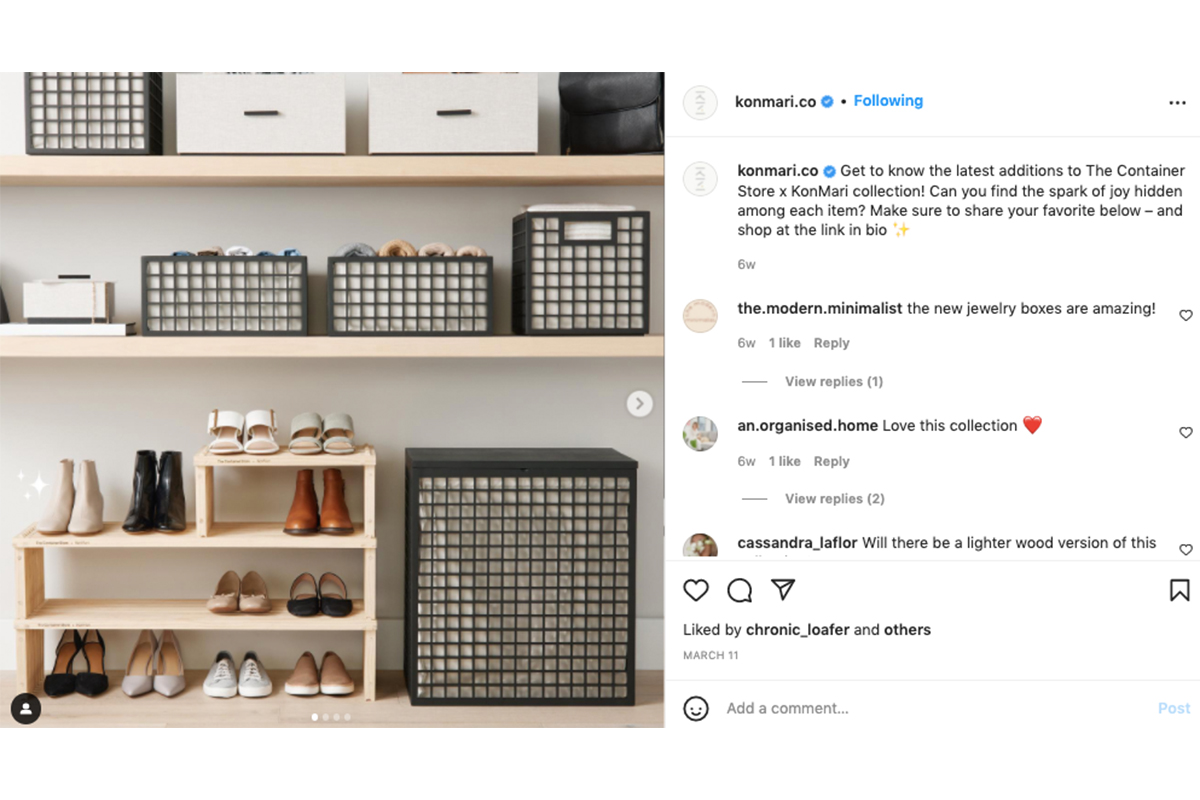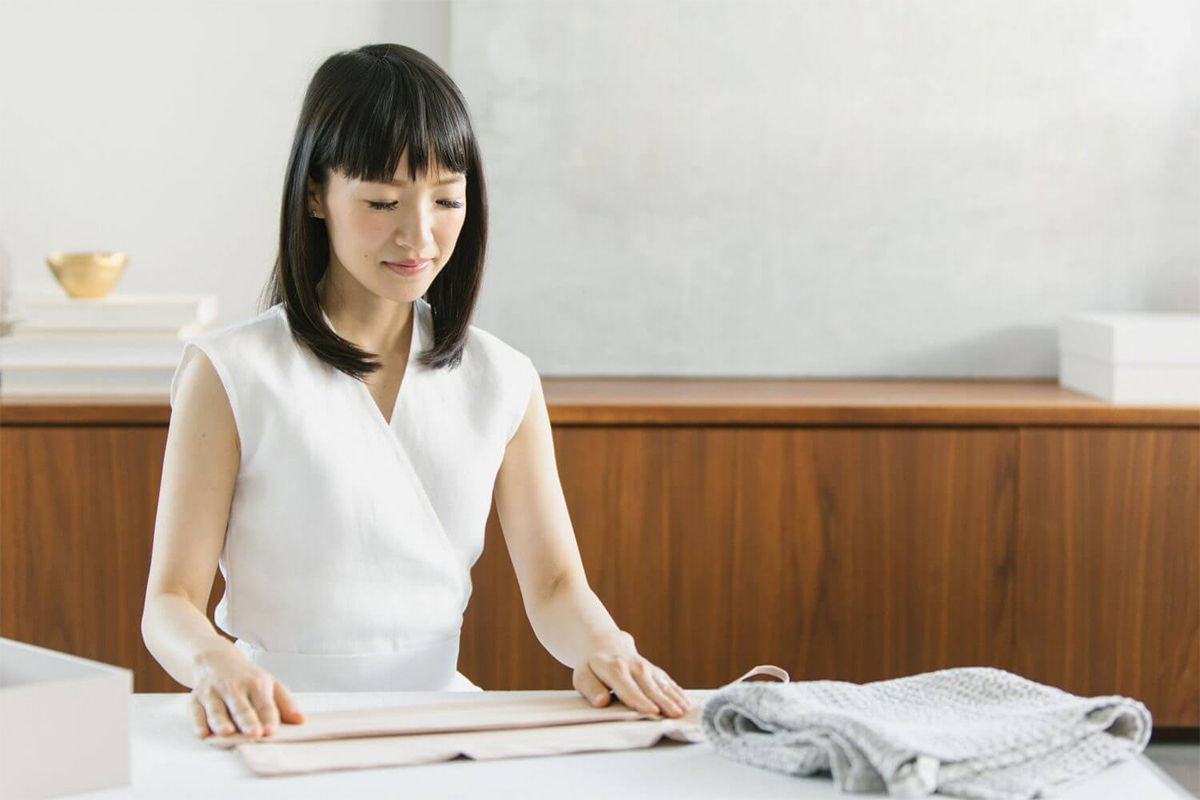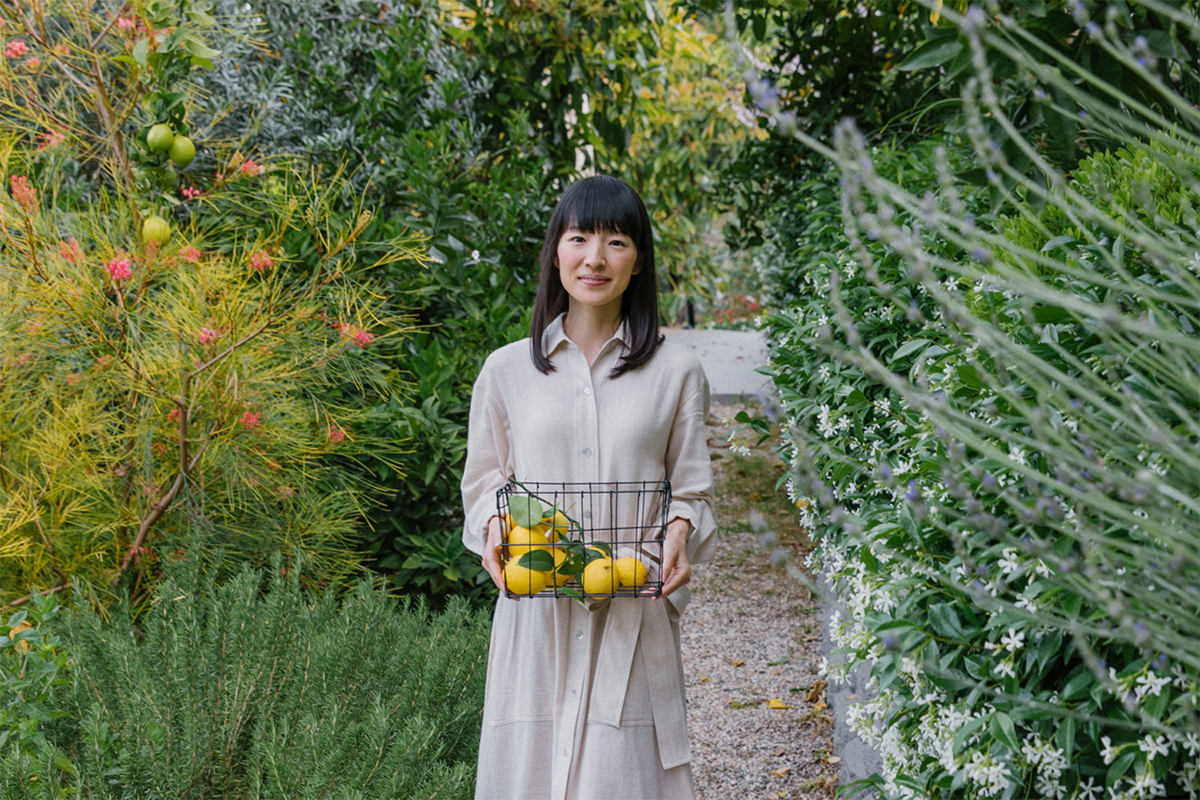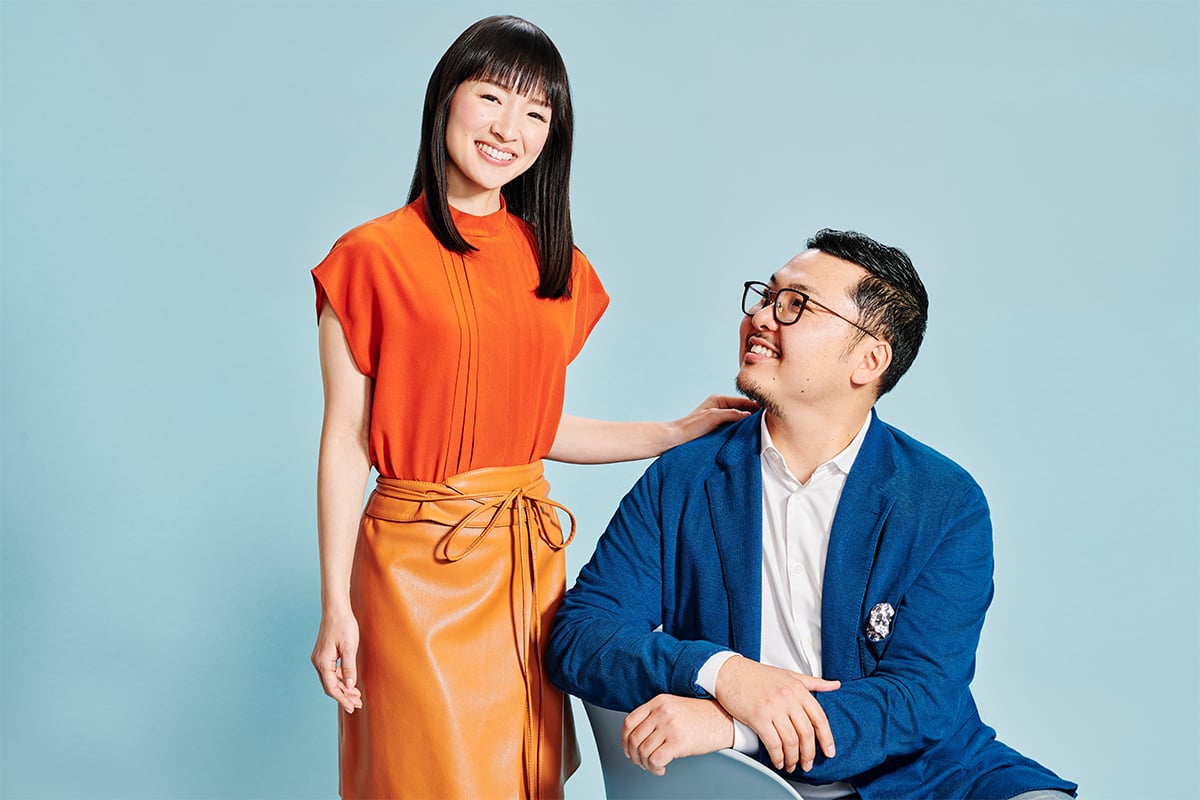Marie Kondo has been mastering the timeless art of tidying since childhood, which has proven itself to be a viable income stream and a rewarding profession.
“I became captivated with the craft of organisation at the age of 15 after reading The Art of Discarding, a bestselling book in Japan at the time,” she says. “I began exploring tidying more seriously and read every book on the subject that I came across.”
Today Kondo – whose estimated worth is around US$8 million – and her husband Takumi Kawahara, who has a knack for networking and growing businesses from scratch, are seeking fresh ways to further elevate and expand their company KonMari.
“We both love to work and even in our private moments offline our conversation tends to be about the KonMari business,” Kawahara admits. “As we have evolved as business partners, we have also learned how to best work together according to each other’s strengths.”
As the demand for home organisation products is anticipated to rise by 3.8 per cent annually, Kondo’s gentle and thoughtful approach to re-envisioning our living environments adds depth and clarity to the often stressful process of taking charge of our belongings.
In 2021 the market was valued at US$11.8 billion, which is not surprising given the way hybrid work arrangements are prompting many of us to re-evaluate our lives, including the look and feel of our surroundings.
The story behind KonMari
Unless you’ve read her iconic book The Life-Changing Magic of Tidying Up: The Japanese Art of Decluttering and Organizing, you might have guessed that Japanese heritage is well-rooted in the foundation of the KonMari brand, but perhaps you weren’t aware that Kondo worked as a Shinto shrine maiden for five years.
The rituals and behaviours that accompany the experience of visiting a shrine is at the heart of what the brand truly stands for – treating spaces with respect and care.
“It all began when I found myself enjoying my visits to the Shinto so much so I decided to work there,” Kondo shares with The CEO Magazine.
“My time spent in the Shinto shrine helped me become the devoted tidying expert I am today and the experience inspired many of the KonMari Method’s thoughtful details and practices.”
Embarking on a road less travelled early in life, the foundation of the KonMari Method was born when Kondo had a sudden epiphany that sparked an idea which would later underpin her business.
“I had a moment of realisation after a particularly long and difficult tidying session, where I passed out on the floor,” she explains. “It was then that I heard a voice telling me to look at the items carefully and closely, and that is when I realised that instead of looking for reasons to discard an item, I should look for reasons to keep them.”
As a 19-year-old university student in Tokyo, Kondo took the plunge to launch her own business working as a tidying consultant.
As simple as tidying may seem, she doesn’t shy away from revealing that “it took years of experience and research working closely with different clients to fully develop the KonMari Method”.
“I feel that every great opportunity in my career has come at exactly the right time and I consider myself very fortunate,” she shares.
However, like all great things in life, Kondo believes that her ongoing commitment to her mission plays an important role in her global success. “I feel I have become the person I am today because of the effort and time I devoted to the craft.”
Fast forward to 2022 and the entrepreneur and mother of three has come a long way.
“My time spent in the Shinto shrine helped me become the devoted tidying expert I am today and the experience inspired many of the KonMari Method’s thoughtful details and practices.” – Marie Kondo
“Those early days of tidying started a domino effect that opened the doors to be an author and business owner of a global company,” she remarks. “The passion and perseverance of entrepreneurship, and the support I’ve found in the team we’ve grown along the way, have evolved into the success of KonMari Media.”
It was her passion for reading that ultimately led Kondo to publishing her first (multilingual) book in 2010 entitled The Life-Changing Magic of Tidying Up, which helped to raise awareness of the KonMari Method and was the magnet for future opportunities.

“My books and television programs, Tidying Up with Marie Kondo and Sparking Joy with Marie Kondo on Netflix, helped create a global platform for me to further impact people’s lives through tidying,” she affirms.
One year into launching KonMari Media in 2015, the couple introduced its certification courses to deliver greater impact on a global scale.
Today, they have 850 professionally trained and certified KonMari Consultants, who work in clients’ homes, offices and personal spaces across 60 countries and six continents.
“The Consultant Certification Courses help ensure that the KonMari Method is being taught and executed correctly, and it presents a unique way for people to expand existing, or create new, revenue streams as consultants,” Kondo explains.
If that’s not enough, KonMari.com is an organiser’s dream with a tasteful and well-curated collection of self-care and organisational products.
Kondo’s bare, natural aesthetic lives on through the ‘Japanese Heritage’ category on the website where you’ll find an array of treasures that are designed to enhance daily rituals and routines.
“KonMari Media always strives to celebrate Japanese heritage, whether by honouring specific Japanese holidays or promoting Japanese-made products,” Kondo says.
“People like our curated collections and items on KonMari.com because we are thoughtful and intentional in what we offer,” Kawahara adds.
Marketing KonMari

Kondo’s intention has always been to bring the KonMari Method into as many people’s homes as possible. And while the spotlight has always been on her, Kawahara’s input is undeniable, as the driving force behind the brand.
The KonMari Method initially primarily appealed to women in their late 30s to 50s, although in recent years millennials have caught on to the ‘sparking joy’ phenomenon.
“Our shows on Netflix, our partnerships and collaborations with The Container Store and Shutterfly, and our social media activations have expanded awareness among younger audiences, particularly with millennials,” Kawahara notes.
Unsurprisingly, as many found themselves at home during the pandemic, new audiences were attracted to KonMari for guidance.
“They turned to KonMari either through the shows on Netflix, Marie’s books, KonMari.com, our social channels or through our partnership with The Container Store,” he adds.
“This opened us up to more audiences and that is something we expect to continue as people prepare to return to the office as well.”
When asked what’s next on the horizon for the brand, Kondo and Kawahara stealthily reveal that they have new exciting projects underway.
“We are constantly thinking of ways to reach new audiences, both as an individual brand and through collaborative partnerships.”
Work–life balance

Growing a business while raising a family is certainly not an easy task but for Kondo, being a mother has strengthened her second occupation in life.
“I like to think that the lessons I have learned – and continue to learn – from being a mother have helped me be a stronger business leader and mentor for other women in business,” she says.
She also points out that “as a business, we have had difficult conversations, and having a clear vision of where I wanted to be, and where I want the company to be, helped me stay focused”.
When The CEO Magazine asked what their secret is to nurturing a joint career and home life, Kondo and Kawahara admit that this has not been easy.
“It has been a learning process to understand how to balance work and life when you work and live with your partner, but at the end of the day, both Marie and I know that our family comes first,” he shares.
Meditation, purifying her space with a tuning fork and crystal, and tending to her vegetable garden are a few of the ways that Kondo maintains a sense of balance. “My passion for the Earth is evident in my tidying philosophy – the belief that all objects have energy and are worthy of care and respect.”

Read next 24 fresh ways to live more sustainably







